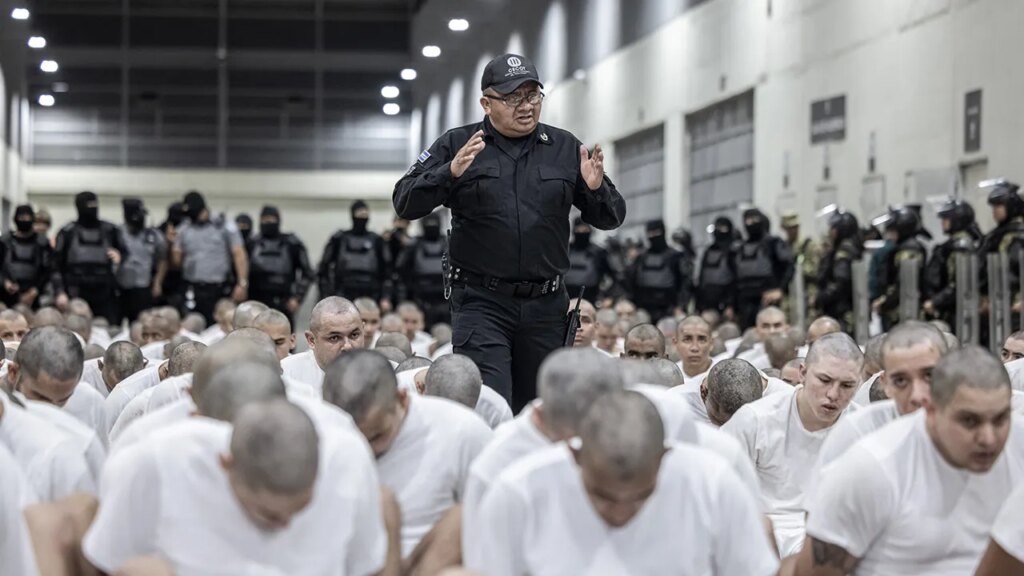A federal judge has allowed Venezuelans targeted for deportation under the Alien Enemies Act in the Southern District of Texas to proceed with a class-action lawsuit against President Donald Trump’s administration.
U.S. District Judge Fernando Rodriguez Jr., who was appointed by Trump during his first term, issued a 12-page order Thursday granting a group of petitioners “class certification.”
“The unusual circumstances of this case present a compelling justification to utilize a procedure equivalent to a class action authorized by Rule 23,” Rodriguez wrote.
The Trump administration has argued the petitioners have “no basis” to establish a protected legal class “to resolve whether an alien has been properly included in the category of alien enemies–necessarily individual determinations.”
TRUMP TO NAME HAITIAN GANGS FOREIGN TERRORIST ORGANIZATIONS: REPORT
The judge considered whether individual “habeas corpus hearings” would be required for every Venezuelan national targeted under the Alien Enemies Act in the Southern District of Texas to determine whether they are members of Tren de Aragua, the Venezuelan gang the State Department designated as a foreign terrorist organization in March. Rodriguez said “requiring individualized habeas corpus proceedings to repeatedly address the common legal issues unduly wastes judicial resources.”
Trump issued an executive order March 14, “Invocation of the Alien Enemies Act Regarding the Invasion of the United States by Tren De Aragua.”
About 100 people have been detained in the Southern District of Texas and “designated as alien enemies under the Proclamation,” Rodriguez noted.
“The present matter raises many common questions of law, but also indisputably raises some questions of fact that would require individualized hearings to resolve,” Rodriguez wrote Thursday. “As to the former, Petitioners challenge the lawfulness of the President’s invocation of the AEA through the Proclamation.
“They argue, primarily, that the preconditions required to apply the AEA do not exist, that the intended application of the Proclamation and the AEA violate the designated alien enemies’ due process rights under the Constitution, and that the procedures that Respondents seek to follow violate the Immigration and Nationality Act and the Convention Against Torture.

TRUMP ADMIN REVOKES 4K FOREIGN STUDENTS’ VISAS IN FIRST 100 DAYS, NEARLY ALL WITH SERIOUS CRIMINAL RECORDS
“These issues hold true for any individual that Respondents designate as an alien enemy under the Proclamation and subject to removal under the AEA,” the order said. “A favorable result on any of these legal theories as to one individual will prove equally applicable to other Venezuelan aliens designated as alien enemies under the Proclamation. As a result, the Court finds that Petitioners identify at least one contention that is central to the validity of each class member’s claims.”
The judge acknowledged that, at the same time, “petitioners cannot deny that whether any particular individual is a member of TdA would require a fact-specific, individualized determination.”
“It is true that the Court would have to determine the applicable legal standard, and this analysis would apply to every class member. But the hearings themselves would proceed individually, as the relevant facts for each person differ,” he said.
According to Reuters, the Trump administration deported at least 137 Venezuelans from the El Valle Detention Center in Raymondville, Texas, under the Alien Enemies Act March 15, but relatives of dozens of the men say they are not TdA members.
In a separate 36-page opinion, Rodriguez also said Thursday the Trump administration could not rely on the Alien Enemies Act to deport Venezuelan nationals who are TdA member anyway because the gang’s presence in the U.S. cannot be classified as an “invasion” or “predatory incursion” under federal law.
“Neither the Court nor the parties question that the Executive Branch can direct the detention and removal of aliens who engage in criminal activity in the United States,” Rodriguez, nominated by Trump in 2018, wrote. “The President’s invocation of the AEA through the Proclamation exceeds the scope of the statute and is contrary to the plain, ordinary meaning of the statute’s terms.

“The Court concludes that the President’s invocation of the AEA through the Proclamation exceeds the scope of the statute and, as a result, is unlawful,” Rodriguez wrote.
In mid-April, Rodriguez granted a temporary restraining order preventing the Trump administration from removing Venezuelans held at the Raymondville detention center. The judge later broadened his ruling to protect all Venezuelans detained in his judicial district, which includes the cities of Houston, Galveston, Laredo, McAllen, Brownsville, Corpus Christi and Victoria, from deportation.
Rodriguez’s ruling Thursday is significant because it is the first formal permanent injunction against the administration using the AEA and contends the president is misusing the law. The Trump administration claims that TdA is acting at the behest of the Venezuelan government.
“The Proclamation makes no reference to and in no manner suggests that a threat exists of an organized, armed group of individuals entering the United States at the direction of Venezuela to conquer the country or assume control over a portion of the nation,” Rodriguez wrote. “Thus, the Proclamation’s language cannot be read as describing conduct that falls within the meaning of ‘invasion’ for purposes of the AEA.”
The judge also noted that the provision has only been used during the two World Wars and the War of 1812.
If the administration appeals, it would go first to the New Orleans-based 5th U.S. Circuit Court of Appeals. That is among the nation’s most conservative appellate courts, and it also has ruled against what it saw as overreach on immigration matters by both the Obama and Biden administrations.
The Supreme Court already has weighed in once on the issue of deportations under the AEA. The justices held that migrants alleged to be gang members must be given “reasonable time” to contest their removal from the country.
The Associated Press and Reuters contributed to this report.
Read the full article here
